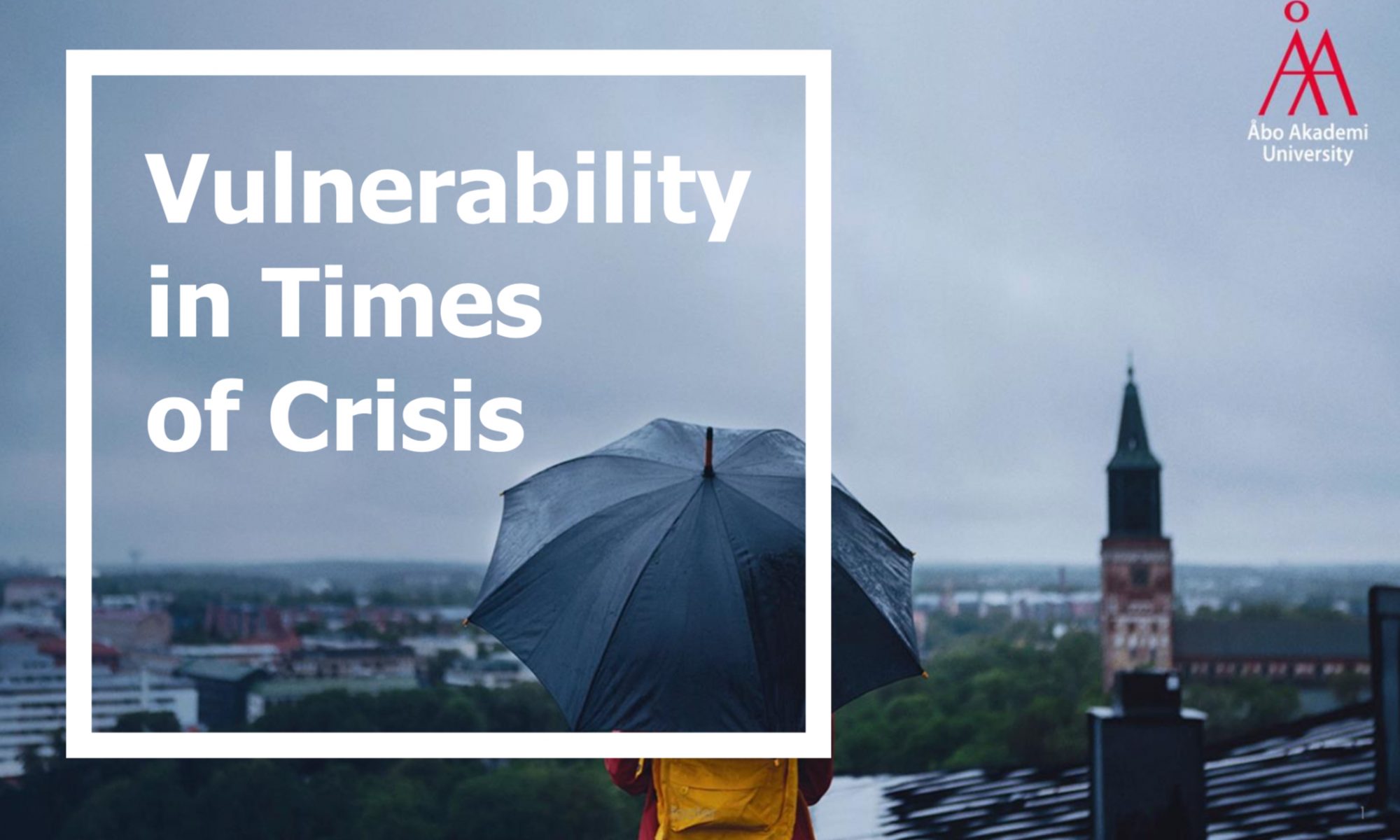19 February 2021, Åbo Akademi University Institute for Human Rights, Turku/Åbo, Finland
The beginning of the 21st century has been a time of nearby-constant crisis. The global financial crisis was followed by the so-called refugee crisis, only to be followed by the Covid-19 pandemic. As a consequence to this, the capacity of many welfare states to protect the rights of individuals has been put to test. Combined with future challenges long foreseen such as an ageing population, altering nature of work, and climate change, there is good reason to engage in a critical debate on the role of the welfare state in protecting individuals, in particular as regards the most vulnerable within societies.
While ‘vulnerability’ has become something of a catchword in protection discourse, its function remains ambiguous and challenged. The workshop identifies uses of the vulnerability concept in the context of crises in welfare states, and takes a critical look at vulnerability reasoning as a structural element in law and politics.
Call for papers
Paper proposals are invited on any theme relating to welfare state approaches to vulnerability and crisis. Papers can engage with the concept of vulnerability both on a more practical or principled level. Questions of special interest for the workshop are (non-exclusively):
-
- How are individuals in vulnerable situtations affected by crises such as the COVID-19? (How) do authorities make use of the vulnerability reasoning in such contexts (e.g. with regard to individuals living in institutions)?
- What is the function of the vulnerability concept in various societal areas affected by different crises (such as migration management or child protection)?
- (How) is vulnerability dealt with as a legal and/or as a political concept?
- Has the ECtHR’s case law and/or UN treaty body practice on vulnerability had an impact on the laws and practices and if so, in which ways?
- Can/do different vulnerability theories inform thinking and policies on vulnerability during crises?
Timeline and submissions
Abstracts of no more than 400 words should be submitted before 11 December 2020 at humanrights@abo.fi. The aim is to publish a selection of the papers presented at the workshop in an edited volume or in an international peer-reviewed journal.
The authors of selected papers will be informed by the end of December 2020. In order to enable an in-depth discussion at the workshop, paper presenters are asked to submit draft papers of around 3000-5000 words by 10 February 2021.
More information
For information on the workshop and the project, please see www.abo.fi/relay. For questions, please contact humanrights@abo.fi.
